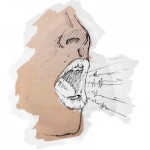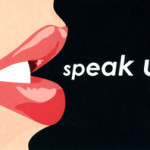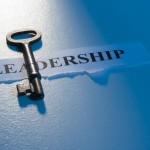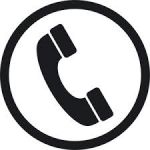Posted on 06 May 2020 Comments (0)
Tags: Anna's Posts, Attitude, Career Builders, communication, Confidence, Confidence Builders, Emtional Intelligence, Interviewing skills, Marketing, Media, Professional Development
 For individuals in transition between jobs, this is the time to practice your virtual interview skills. Here are some helpful tips for a successful virtual interview. First, prepare an introduction (approximately one minute long). Next, prepare yourself to answer the following questions:
For individuals in transition between jobs, this is the time to practice your virtual interview skills. Here are some helpful tips for a successful virtual interview. First, prepare an introduction (approximately one minute long). Next, prepare yourself to answer the following questions:
- Why are you the right fit for the organization? What about your attributes and experiences makes you the best candidate for the role?
- What is a succinct example that illustrates you have the qualities needed to make a difference and contribute towards the organization’s success?
Record yourself three times. Then watch your recordings and pick the best one to send to colleagues for review. Pinterest and Instagram are wonderful resources to find information as to what to wear and what to say.
These guidelines will help prepare you for a virtual interview or a phone interview. Just like preparing for an in-person interview, you need to think ahead. In these times, you also need to consider your virtual presence
Posted on 27 October 2017 Comments (0)
Tags: Anna's Posts, Attitude, Behaviors, Career, Career Builders, Career Killers, communication, Confidence Builders, Interviewing skills, Leadership Presence, Speaking Skills
 Recently, I was asked to help the daughter of a friend prepare for a job interview. These are the dos and don’ts of interview preparation:
Recently, I was asked to help the daughter of a friend prepare for a job interview. These are the dos and don’ts of interview preparation:
Do:
• Prepare by learning what the job and the organization are about
• Have a personal story about yourself
• Be able to state why you are the best person for the job
• Be able share a situation where it did not work out and what you would do differently
• Be enthusiastic and answer questions with confidence even if you’re uncertain of the answer
Don’t
• Go in with the idea that they need you
• Go in without being fully prepared on what the job is about
• Go in dressed for an outdoor event
• Go in with a weak handshake
 Information overload is a killer because it can jumble the true issues. Setting a timeline and a process to gather data are the first critical steps to ensure enough data is gathered. Doing the early research to determine what and how much information is needed sets you on the right path to completion. The timeline of when the project or report is due also acts as a finish line. Duplicate and / overwhelming information will only complicate the end result.
Information overload is a killer because it can jumble the true issues. Setting a timeline and a process to gather data are the first critical steps to ensure enough data is gathered. Doing the early research to determine what and how much information is needed sets you on the right path to completion. The timeline of when the project or report is due also acts as a finish line. Duplicate and / overwhelming information will only complicate the end result.
 Connect with the interviewer – do your research on the company, position, and industry. Know their competition, their strengths and what make their employees happy. This helps you generate impactful questions, letting the interviewer know you understand their opportunities and challenges.
Connect with the interviewer – do your research on the company, position, and industry. Know their competition, their strengths and what make their employees happy. This helps you generate impactful questions, letting the interviewer know you understand their opportunities and challenges.
Be able to talk about yourself – prevent an interrogation by the interviewer. Practice talking about yourself with a friend. Video a mock interview of yourself to see how you can strengthen your presence. When you do, be prepared to see a different person on the video than the one you think you are.
Be memorable – follow up professionally even if you are not offered the position. You got your foot in the door this time. Make sure they think of you next time.
 An interview occurs every time you are in front of someone and not just formally. In fact, most of the time interviews are informal which can be just as important. You should think of them as practice so that when you have a real interview the practice ends up paying off. Think this way so that when you are in the real deal, you will be natural and bring your best self to the table.
An interview occurs every time you are in front of someone and not just formally. In fact, most of the time interviews are informal which can be just as important. You should think of them as practice so that when you have a real interview the practice ends up paying off. Think this way so that when you are in the real deal, you will be natural and bring your best self to the table.
Probably close to 100% of the time, when you get the chance to interview, the interviewer has an idea about your background because someone already vetted you. Your role is to engage the interviewer so h/she can see you as a leader and a member of their team. In the interview process, your message is to share your experiences and say what you will bring to the table. Most of the time, when someone fails the interview, it’s because a relationship did not materialize or that the wrong kind of bonding occurred. Listening also plays a key part in making all interviews successful interactions.
Posted on 12 November 2015 Comments (0)
Tags: Appearance, Attitude, Behaviors, Body Language, communication, Culture, Facial Expressions, Interviewing skills, Leadership, Leadership Presence, Men's Appearance, Personal Development, Professional Development, Relationship Building, Social Etiquette, Speaking Skills, Women's Appearance
 Lesa Frances Kennedy, CEO of the International Speedway Corporation and Vice Chairwoman of NASCAR, answered the question: How do you hire?
Lesa Frances Kennedy, CEO of the International Speedway Corporation and Vice Chairwoman of NASCAR, answered the question: How do you hire?
“First impressions are so important in terms of fitting in on the team. The moment you walk in the door; you’re being observed. You may not know that, and it’s not anything formal, but I’ll get feedback. You read the body language of some of the people they’ve met, like a receptionist, and you can pick up very subtle cues about how they felt about that person. Was the person respectful?”
As you read this quote from the NYT Corner Office, Sunday, October 25th, consider the first impressions you create no matter who you meet. Does your first impression project confidence and approachability? Are you someone they want work with in the best of times as well as when problems arise?
 I encouraged a client to go on a high profile interview because the more he received exposure to leaders, the better the opportunities might be for him in the future. (The old saying who you know has been long been replaced by who knows you!) Often, folks miss opportunities because they lack confidence or are afraid of interviewing. Practice is good, however exposure and practice is much more effective in building confidence so that when the opportunity arises, you’re ready!
I encouraged a client to go on a high profile interview because the more he received exposure to leaders, the better the opportunities might be for him in the future. (The old saying who you know has been long been replaced by who knows you!) Often, folks miss opportunities because they lack confidence or are afraid of interviewing. Practice is good, however exposure and practice is much more effective in building confidence so that when the opportunity arises, you’re ready!
Posted on 19 March 2015 Comments (0)
Tags: Anna's Posts, Appearance, Attitude, Behaviors, Body Language, Career Builders, communication, Culture, Derailers, Interviewing skills, Leadership Presence, Men's Appearance, Personal Development, Professional Development, Relationship Building, Speaking Skills, Women's Appearance
 It is often said that our eyes are the window to the world. They are also are how folks read you. Eye contact is critical when first meeting someone because it shows engagement and that you are focused on what they are saying. It also will help you remember names and something about them.
It is often said that our eyes are the window to the world. They are also are how folks read you. Eye contact is critical when first meeting someone because it shows engagement and that you are focused on what they are saying. It also will help you remember names and something about them.
Eyes, when looking down, up, to the right or to the left, do not send a good message. In some cases, it shows nervousness and even deception in a reply.
Posted on 10 February 2015 Comment (1)
Tags: Anna's Posts, Appearance, Behaviors, Body Language, Career Builders, communication, Interviewing skills, Leadership, Leadership Presence, Men's Appearance, Professional Development, Relationship Building, Women's Appearance
 The most important asset of your body language is the facial expression. So many times I have been asked to work with clients who have a poker face. The reason the poker face is such a negative part of body language, is that it puts up a wall to communicating. People cannot read or connect with you when there is no expression on your face. When there is a lack of emotions, there is no communications. A true leader must be able to communicate.
The most important asset of your body language is the facial expression. So many times I have been asked to work with clients who have a poker face. The reason the poker face is such a negative part of body language, is that it puts up a wall to communicating. People cannot read or connect with you when there is no expression on your face. When there is a lack of emotions, there is no communications. A true leader must be able to communicate.
 Recently I have been interviewing folks on the phone for a special project for a client. Here are a few do’s for interviewees:
Recently I have been interviewing folks on the phone for a special project for a client. Here are a few do’s for interviewees:
• Do give a mobile phone number that has good voice clarity
• Do give hours that you are available for an interview
• Do be able to answer questions like why we should engage you for the project
• Do apply for the role only if you have a current background in the field
• Do give a snapshot of your background in less than three minutes
• Do include impact statements (how your actions have positively affected a situation) in your background snapshot
Use these 6 do’s in your phone interview and you will have a very good chance of landing the role you want.
 For individuals in transition between jobs, this is the time to practice your virtual interview skills. Here are some helpful tips for a successful virtual interview. First, prepare an introduction (approximately one minute long). Next, prepare yourself to answer the following questions:
For individuals in transition between jobs, this is the time to practice your virtual interview skills. Here are some helpful tips for a successful virtual interview. First, prepare an introduction (approximately one minute long). Next, prepare yourself to answer the following questions:

 Recently, I was asked to help the daughter of a friend prepare for a job interview. These are the dos and don’ts of interview preparation:
Recently, I was asked to help the daughter of a friend prepare for a job interview. These are the dos and don’ts of interview preparation: Information overload is a killer because it can jumble the true issues. Setting a timeline and a process to gather data are the first critical steps to ensure enough data is gathered. Doing the early research to determine what and how much information is needed sets you on the right path to completion. The timeline of when the project or report is due also acts as a finish line. Duplicate and / overwhelming information will only complicate the end result.
Information overload is a killer because it can jumble the true issues. Setting a timeline and a process to gather data are the first critical steps to ensure enough data is gathered. Doing the early research to determine what and how much information is needed sets you on the right path to completion. The timeline of when the project or report is due also acts as a finish line. Duplicate and / overwhelming information will only complicate the end result. Connect with the interviewer – do your research on the company, position, and industry. Know their competition, their strengths and what make their employees happy. This helps you generate impactful questions, letting the interviewer know you understand their opportunities and challenges.
Connect with the interviewer – do your research on the company, position, and industry. Know their competition, their strengths and what make their employees happy. This helps you generate impactful questions, letting the interviewer know you understand their opportunities and challenges. An interview occurs every time you are in front of someone and not just formally. In fact, most of the time interviews are informal which can be just as important. You should think of them as practice so that when you have a real interview the practice ends up paying off. Think this way so that when you are in the real deal, you will be natural and bring your best self to the table.
An interview occurs every time you are in front of someone and not just formally. In fact, most of the time interviews are informal which can be just as important. You should think of them as practice so that when you have a real interview the practice ends up paying off. Think this way so that when you are in the real deal, you will be natural and bring your best self to the table.






